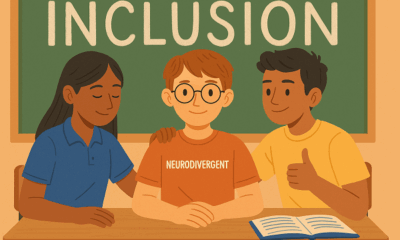News
The 21st century safe school addresses school safety from a holistic perspective
When it comes to the safety of students, it is infinitely better to err on the side of caution.
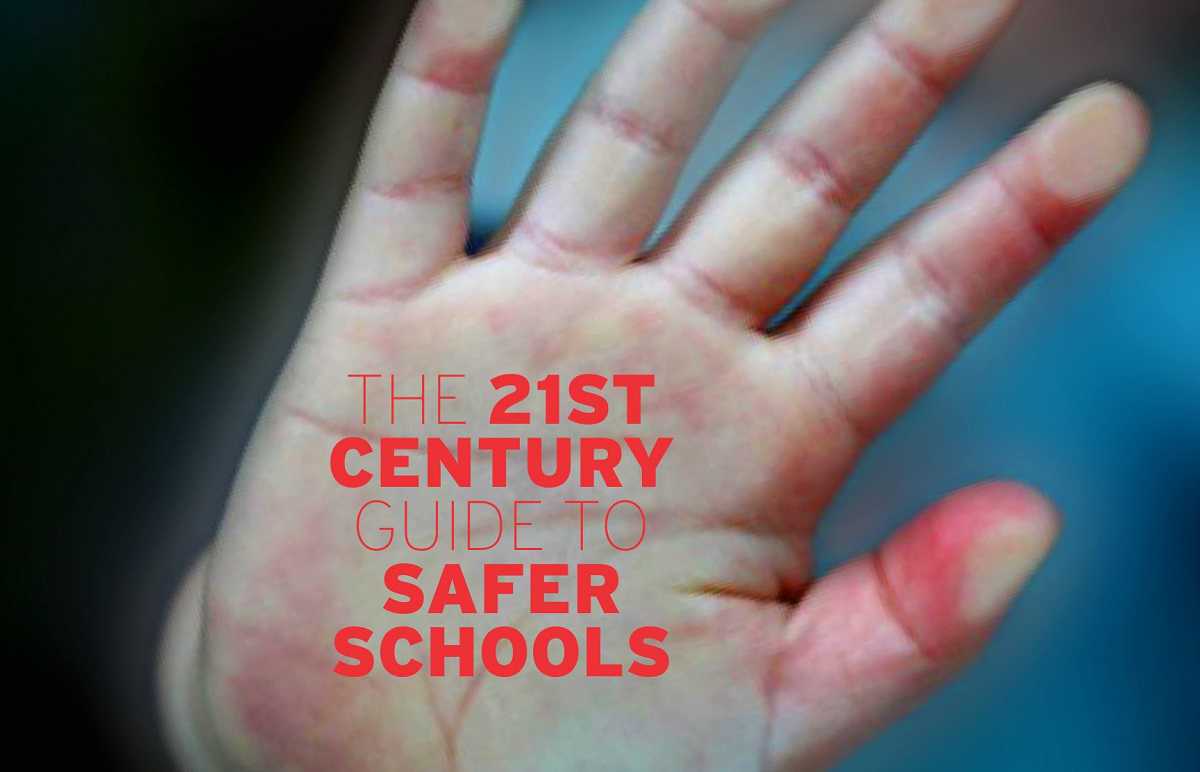
The shock remains but the panic is replaced by a growing resolution: Enough is enough. The recent gruesome incidents (rape/ murder) targeting children in schools, compels a complete relook and rethink of where we are going wrong and what exactly can be done to ensure and secure the safety of our children. Keeping students safe and in an environment where they can flourish is becoming more and more difficult. Children spend a large percentage of their time at school and it is imperative that we make sure that we implement every possible measure to keep them safe.
A new kind of rigorous education is now a must for all children as well, maybe from the very moment they learn to understand the word “safety”. It is not only the parents’ responsibility to make sure their child is safe but also the duty of the school that we equip the minds of our children to do everything in their power to protect themselves from the monsters that roam in society.
Sexual Abuse
A difficult topic but one which demands we shed inhibitions and educate children about the issue and their rights.
In most cases the sexual predator is usually someone the child knows and has interacted with. A teacher, a family member, a neighbour, a friend… any of these people who we come to trust may violate our children.
The concept of ‘Your mind, your body’ should be taught to a child. A child must know that they and only they own their bodies and it is okay for them to say ‘NO’ if they don’t want to be touched. Even if it’s as simple as a hug or a kiss, a child should have the right to say no if it makes them even slightly uncomfortable. They have certain areas as ‘private’ which are off limits to everyone else, including members of the family.
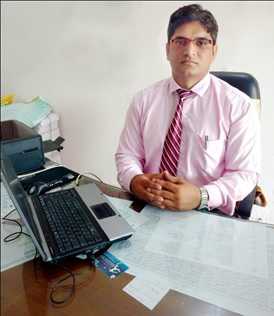
Pushpendra Kumar, Principal, RM Public School, Bijnor
Says Pushpendra Kumar, Principal, RM Public School, Bijnor, “It should be made mandatory for school children to be educated about sex. Since I am from a rural area, I see a lot of parents hesitating to discuss sex with their child. As society leaders we have to take up these responsibilities as sex education is not only for the children of the big cities; it is very important for the children of the rural areas as well to understand and shed inhibitions around the topic.”
Using appropriate terminology is important. It ensures that the child is correctly informed and can talk about it if there is a situation. Making the child feel comfortable during this conversation is a must.

Sonal Ahuja, Director, Shri Ram Foundation Preschool
Sonal Ahuja, Director, Shri Ram Foundation Preschool and Shri Ram Bal Bharti School emphasises on the fact that, “Once we cross the barrier of our own apprehensions, only then will we be able to share many more secrets of ‘sex education beyond the physical act’, with children.”
The mouth, chest area, stomach area, area between the legs, buttocks are off limits to anyone and everyone. That doesn’t mean that everywhere else is okay. Illustrated books on sex education can be used to explain these concepts to children simply and effectively.
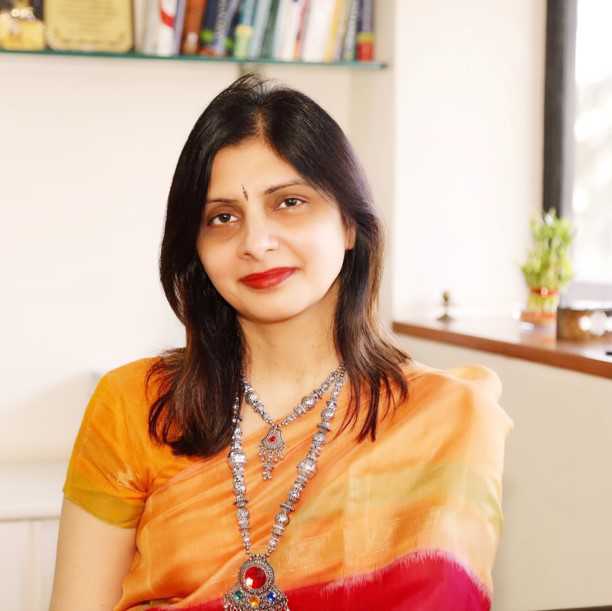
Kavita Sanghavi, Principal, MET Rishikul, Mumbai
Sex education is mandatory. According to Kavita Sanghavi, MET Rishikul, “Sex education is imparted through regular sessions by the school counsellor and expert talk on the subject is delivered to students by gynaecologists, psychologists and sexologists from outside.” This awareness goes a long way in keeping children safe.
Bullying
Bullying, one of the largest problems in schools, is a form of abuse that usually occurs when a child or a group of children target another individual and exercise their power over them. It usually happens in areas that have less supervision by the staff or teachers of the school – bathrooms, deserted hallways, cafeterias, at the school bus areas or even in the bus. Bullying comes in many forms – fighting, name calling, teasing, excluding someone repeatedly…. Bullying can be physical or an emotional trauma for the child who is at the receiving end of it.
Bullying isn’t considered a big problem as compared to drug abuse, so most parents and teachers tend to make light of it, but it can have long lasting effects on the child being bullied and on the bully as well.

Sunny Mahajan, Joint Secretary, Pratap World School
If signs of bullying are seen, a parent or teacher must address it immediately. A child disclosing an incident of bullying must be taken seriously. Sunny Mahajan, Joint Secretary, Pratap World School says, “Workshops are conducted with students and there is an Anti-Bullying committee also in place. Statements like these are also highlighted at various places in school. Bullying is strictly prohibited inside the school premises and no such act should go unnoticed or unpunished.”
Don’t brush it away. Certain tell-tale signs can be seen if a child is a victim of bullying. They might withdraw from people and from friends, lose interest in activities they previously used to enjoy, display physical injuries, and show a drop in grades, etc.
If a child is being bullied, they can be helped, first by talking to the parents of the bully, teaching kids to take the non-violent approach to deal with a bully by walking away, talking it out or just by moving away to play with a group of friends. They need to be helped to restore their confidence. The first thing that bullies usually do is to break the self-confidence of a person.
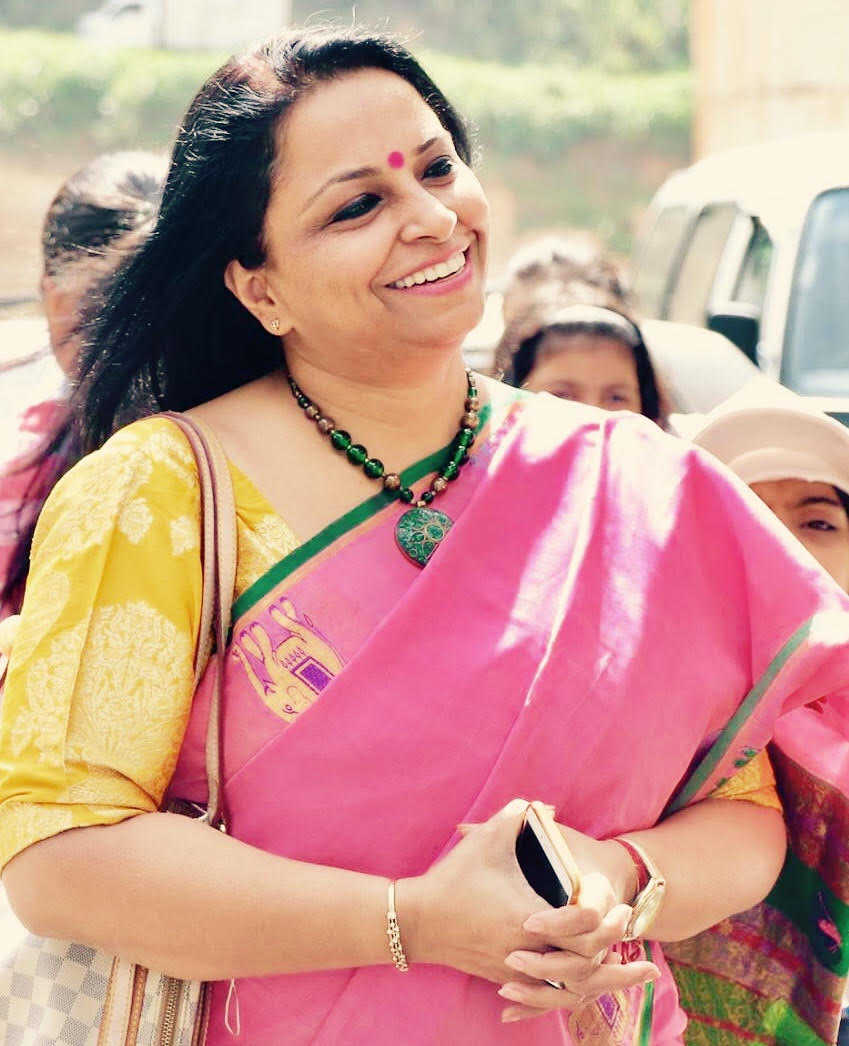
Taruna Kapoor, Vice Principal, The Wisdom Valley Global School, Palwal
Vice Principal, The Wisdom Valley Global School, Palwal, Taruna Kapoor says, “We conduct assessments in our school as to how often bullying occurs, when it occurs and how students and adults intervene. Parents are also made aware of these problems and encouraged to handle them properly. Awareness campaigns and workshops are conducted for the benefit of students. A thorough code of conduct, rules and reporting system is established. Also, a general school culture of acceptance, tolerance and respect is encouraged. Positive social interactions among school staff, students and parents is reinforced. Bullying prevention materials are introduced in the school curriculum and activities.”
She adds, “Bullying can threaten students’ physical and emotional safety at school and can negatively impact their ability to learn. The best way to address bullying is to STOP before it starts.”
Children who are bullies must also be helped as it can cause severe behavioural problems later in life. Children normally turn out to be bullies when they don’t empathise or sympathise with others, they usually like to be the centre of attention, enjoy aggression and love to pick fights. A counsellor at school could talk to the child, and may help get to the root cause of the problem. They might have anger issues, or some changes that are happening at home or they might feel insecure. Counselling may help solve these problems. Children who usually bully have, at some point, been victim themselves.
Learning Disabilities
How receptive are our schools and teachers to kids who have learning disabilities? These kids are most vulnerable and are at a risk for long term academic and social problems. Children who find it difficult in classrooms be it with reading, writing, comprehending, paying attention, proper coordination, memory, and staying organised could be facing learning disabilities. These disabilities can manifest in varying degrees of severity. Some students may struggle with more than one. Proper diagnosis is extremely important, followed by remedial measures to correct their situation. Solutions for children with learning disabilities must focuses on individual achievement, progress and learning to ensure they are successful.
Depression
Although depression is classified as an adult disorder, children are also susceptible to it. When depression is recognized early and treatment is provided, young people can feel and function better in school and life. Schools play a pivotal role in in identifying depression and intervening. School staff must be knowledgeable about depression as the disorder can seriously impair academic and interpersonal behaviour. Some of the signs teachers must look out for are: low tolerance for frustration and negative patterns for thinking, giving up on tasks quickly which they find daunting, doubting their ability to independently complete tasks and solve problems, lethargy, speaking laboriously, difficulty in completely expressing thoughts and ideas, decreased self-esteem and self-worth, and separation anxiety from parents.
In cases where the child is going through depression a home-school communication system has to be developed to share information on the student’s academic, social and emotional behaviour. The best approach taken is often individualised. Children, when helped to overcome their depressed state with patience and perseverance from school staff, home and peers, tend to lead happy and normal lives.
Corporal Punishment
A common disciplinary measure in schools is corporal punishment. Hitting with the hand or with an object like a cane, pinching, excessive physical exercising, twisting of the ear, etc are some forms of corporal punishment. There have been instances where children have lost their lives or have been gravely injured. In most cases the physical hurt can be treated but the psychological and emotional effects can have severe consequences in the future. Mental harassment is also a form of corporal punishment.
There is no excuse to resorting to corporal punishment. It is important to treat every student with respect and care. Children can lose their confidence and self-esteem. With a child being continuously subjected to corporal punishment, the dire consequences could be children developing aggressive or destructive behaviour. They start to think that it is okay to hit someone if not listened to, or they may show cowardice, learning to obey without asking questions or having opinions.
It is the collective responsibility of all to abolish corporal punishment completely. Teachers and educators need to form mutual agreements with students, motivating them and giving them a sense of belonging to the school. It is the right of every human to live a peaceful life without having to face violence in any form.
Online Abuse
Technology cannot be eradicated from children’s lives; it is here to stay. Monitoring them every second of everyday is impossible. So, when they get sucked into the big bad world of virtual reality what do we do? How do we cope with the fact that our kids can be hurt by someone who is sitting thousands of miles away?
The Blue Whale game, which is a 50-task game culminating in a suicide order, is a classic example of children being ensnared online. Developing trust and openness is the way to combat such dangerous influences. Children should be educated to talk openly about things that concern them, whether it is internet related or otherwise. Adults in a child’s life should make sure they don’t blow things out of proportion or overreact to situations but understand the needs of the child so that, in any situation, they feel comfortable to come up and speak to an adult, regardless of the issue.
We need to speak to children, develop their self-worth and give them the confidence that life is not about letting someone or something influence us into the wrong behaviour, and that there are alternatives to combat stress and confidence issues.
Countering the sinister Blue Whale challenge is the Pink Whale challenge or the Baleia Rosa game, which aims to spread not anguish and harm but love and happiness. While the Blue Whale is about depressing messages, self-harm and suicide, Baleia Rosa promotes positivity and encourages people to save lives.
Eventually, youngsters must realize that online challenges are not the ultimate game-changers, and that we all have our inherent traits of strengths and weaknesses – it is up to us to work on them.
Internet Safety
Internet usage has to be monitored continuously as today’s youngsters tend to use the internet heavily these days. It is important to provide kids with safety and protection from online predators.
We must keep an eye out on what they surf online. Children should be taught not to trust everything that they hear or see on the internet and to never reveal any personal information like their real name, which school they go to, their address or even frequent places they hang out. They must also be told not to share their family or friends’ information either.
Most internet browsers have parental controls that can be easily used to set up security safeguards and content filters for language, nudity, sex and violence. Special browsers can also be set up that are kid-friendly. You can allow your child to only have access to this browser.
Children also get sucked into online chats where identity thieves or child predators pose as friends. A constant vigilance has to be maintained to their chat activity.
Children must be allowed to play age appropriate games. Check gaming websites that list the ratings of each game.
Do not allow children to do online shopping by themselves, we never know if they are going into insecure sites to make purchases and could be left vulnerable to online thefts.
School Safety
Schools must ensure that there is CCTV coverage in all corners of the school to ensure that the kids are monitored. When hiring staff and teachers, the school must ensure that they go through the proper channels of hiring, because these are the people who are responsible for a child’s safety and wellbeing. Schools must develop guidelines regarding the hiring process. It shows that the institute has done their homework and that they are a serious organisation and not just a money-churning machine.
Says Kusum Kanwar, Principal, Billabong High International School – Santacruz, “The 21st Century Safe School is a forward-thinking comprehensive approach addressing school safety from a holistic perspective of mental, emotional, physical and social safety. It is much more than physical threats. However, schools at times have a false understanding of school security and poor training and not following best practice guidelines for safety programs, leaves schools vulnerable to threats.
“Students deserve quality education in a learning environment where they feel safe and secure. Ensuring safety training for stakeholders prepares and empowers school administrators, educators and staff to effectively plan and train for a multitude of potential threats risks. It begins with planning and an increased level of awareness of potential threat indicators.
“Safety Training includes creating safe learning environments which are emotionally and psychologically safe, have situational awareness and other critical social and behavioural topics and simulation drills and safety exercises. Many schools have a mindset that training a small number of staff who can train the rest of employees can help, however the outcome will probably not be favourable. Parents need to be a collaborative partner in this endeavour by heightened awareness.
“Safety Training programs need to merge mental health and security practices for creation of a safe school.”
“If a school is aware about the facts related to raising sensible children, then parents automatically start following the culture of the school,” points out Sonal Ahuja, Director, Shri Ram Foundation Preschool and Shri Ram Bal Bharti School. “We hold sessions and make sure that each one of them attend. School activities are not done just as formalities. We make sure that raising a child is a triangular effort: Teacher-Child-Parent. We all have to play our roles equally to reach a set standard or a goal.
“Schools are expected to address behavioural issues, minimize absences, reduce or eradicate mistreatment and bullying, prevent abuse cases and also fully prepare all students regardless of family circumstances or community characteristics. Given these demands, schools may find it difficult to be successful if they are operating in a reactive stance.
“Quality and character of school life can also be improved by welcoming partnerships, which aim at mutual trust and respect, responsiveness, research, reflections and introspections. In this partnership, school, staff, principal, parents, neighbourhood school representatives can develop a plan of action that is responsive to the needs of the school towards safety and security. The goal is not to provide the ‘one size fits all’ set of prescribed action. Schools should now step out of the so called, self-centred approach and bring a more community driven approach, by collaborating and welcoming partnerships – more brains, more reflections and hence most appropriate action plans leading to safe schools.”
Sunny Mahajan, Joint Secretary, Pratap World School also adds, “More personalized care by every member of the school can help in spreading positivity and protection for students. Mobile jammers can be introduced so that children do not become a victim of the Blue Whale game in school premises, particularly boarding schools. CCTV cameras should be present in every nook and corner so that everyone is alert. Police verification of each staff member must be conducted and anyone found with a record should not be kept in school. Psychometric assessment of each and every employee is essential. There should be security guards in school premises at various points as a physical presence always has an edge over any technology. Meditation activities for non-teaching and teaching staff help to maintain a positive balance of energies. Negative thoughts can be channelized. Ensuring more technology driven checks and balance can also help.”
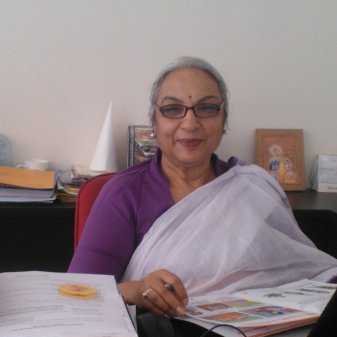
Kalpana Chaudhary, Director, NH Goel World School, Raipur
Kalpana Chaudhary, Director, NH Goel World School, Raipur, says that apart from the regular norms of school safety, “We also do not encourage children driving their own two or four wheelers to school. We encourage children to use school transport. The children who come by their own vehicles have been issued I-cards to the drivers. Their names and phone numbers have to be registered with the school and they have to sign a register and a gate pass while leaving the school. Random and regular breath checking of the support staff specially the transport department is also essential.”
Stay Prepared
Life is full of surprises, not all of them pleasant. It is better that the organisation is prepared for fewer surprises. Institutes must continuously sensitise staff and enhance security measures in all possible ways. Some schools have already increased their security detail. Some of the measures that these schools have taken are:
The school staff and teachers are in the premises much before the students enter the school. After dispersal the building is secured by security staff.
CCTV cameras are installed at strategic points across the school and are regularly monitored by dedicated personnel. Regular maintenance is done to ensure functionality is strictly implemented.
Entry and movement of all adults in the school campus is recorded. The school is secured and the gates are manned by security guards all the time.
Students toilets are clearly demarcated and separate toilets are used by the support staff.
The GPRS system has been incorporated for school buses, while CCTV cameras, first aid and fire extinguishers have been placed in every bus.
Students board and alight from the buses within the school premises under the supervision of the school transport in charge.
Teachers are assigned duties on vantage points during school hours.
The school medical team comprising of doctors and counsellors conduct regular sessions with students on various subjects on safety and otherwise.
Bullying is strictly dealt with. Corporal punishment is not permitted and the physical safety of each child is of utmost importance.
An ambulance is stationed at the campus at all times for any medical emergencies.
Adding to these measures, Kavita Sanghvi, MET Rishikul, recommends that profiles are very clearly outlined to all so that every stakeholder is aware of their roles and responsibilities. Regular monitoring and recording, working closely with parents and earn their support and trust, informing parents of the school safety measures, holding meetings with staff members on child protection policy and their need to look into every aspect of students’ safety, recording of regular inspection by school safety officer, and the Police Clearance Certificate (PCC) of male staff members, are all essential steps.
When it comes to the safety of students, it is infinitely better to err on the side of caution.
This story features as the cover story in our October 2017 issue.
Education
Supreme Court’s Landmark Judgment for Schools: Menstrual Health is a Fundamental Right
In a transformative judgment delivered on January 30, 2026, the Supreme Court of India has unequivocally placed menstrual health within the ambit of fundamental rights, linking dignity, education, and equality in classrooms across the country. This ruling goes beyond infrastructure mandates to address stigma, awareness, and school culture—reshaping how institutions must support adolescent girls. ScooNews breaks down what the judgment says and what it now requires every school leader to do.

In a landmark judgment that firmly connects constitutional law with everyday classroom realities, the Supreme Court of India has declared menstrual health a fundamental right, placing it squarely within the ambit of Article 21 (Right to Life with dignity) and Article 21A (Right to Education).
Delivered on January 30, 2026, by a Bench of Justices J.B. Pardiwala and R. Mahadevan, the ruling in Jaya Thakur vs Union of India goes far beyond symbolic recognition. It lays down clear, enforceable obligations for schools—government and private alike—transforming menstrual hygiene from a welfare measure into a constitutional duty.
For school leaders, this judgment marks a decisive shift: menstrual dignity is no longer optional, charitable, or discretionary. It is a core educational standard.
Why the Court Intervened
The Court acknowledged what educators and parents have long known but systems have often ignored:
lack of menstrual hygiene support is a direct barrier to girls’ education.
Absenteeism, discomfort, fear of embarrassment, inadequate toilets, and social stigma collectively push many girls out of classrooms—sometimes temporarily, sometimes permanently. By recognising menstrual health as integral to dignity and learning, the Court affirmed that no girl should ever have to choose between her education and her period.
What the Court Said
The judgment rests on three powerful principles:
- Menstrual health is inseparable from dignity and bodily autonomy, which are central to the Right to Life.
- Education cannot be meaningful if menstruation becomes a reason for exclusion, discomfort, or discrimination.
- Infrastructure alone is insufficient—social stigma, silence, and male insensitivity must also be addressed.
In a telling observation, the Court noted that “ignorance breeds insensitivity” and warned that menstrual facilities will remain underused unless schools actively dismantle stigma.
What Schools Must Now Do
The Court’s directions are both practical and time-bound, with a three-month implementation window. They fall into two clear buckets: infrastructure and ecosystem change.
-
Physical Infrastructure: The Non-Negotiables
All schools—government and private—must ensure:
- Free provision of biodegradable sanitary pads, with a preference for discreet access such as vending machines.
- Functional, gender-segregated toilets with running water, soap, privacy, and regular maintenance.
- Disabled-friendly sanitation facilities, ensuring inclusivity for all students.
- Safe and hygienic disposal systems, including covered bins and environmentally compliant solutions.
- Creation of a Menstrual Hygiene Management (MHM) Corner stocked with emergency supplies such as spare uniforms, innerwear, and hygiene kits.
The Court made it clear that absence of these facilities amounts to denial of constitutional rights.
-
Cultural & Educational Shift: The Ecosystem Solution
Perhaps the most progressive aspect of the ruling is its insistence that menstrual health is not a “girls-only issue.”
Schools are now expected to:
- Sensitise boys about menstruation as a normal biological process, removing shame, jokes, and harassment from school spaces.
- Train male teachers and staff to respond empathetically to menstruation-related needs, without interrogation or embarrassment.
- Integrate age-appropriate, gender-responsive content on menstruation and puberty into health and wellness curricula, in line with NCERT/SCERT guidance.
- Foster a school culture where menstruation is discussed openly, respectfully, and without euphemism.
The message is unambiguous: pads without dignity do not equal access.
A Clear Warning to Private Schools
The Supreme Court issued a firm caution to private institutions:
non-compliance can lead to de-recognition.
By linking menstrual hygiene directly to the Right to Education, the Court has placed accountability squarely on school managements. Compliance is no longer a matter of reputation—it is a legal obligation.
Why This Judgment Matters
This ruling represents a rare moment where law, education, health, and gender equity intersect meaningfully.
It acknowledges that:
- Equality in education requires both facilities and acceptance
- Silence around menstruation is itself a form of discrimination
- Boys and men must be part of the solution—not bystanders
For school leaders, this is an opportunity to lead with empathy, foresight, and constitutional responsibility.
The Bottom Line
The Supreme Court has drawn a clear line:
menstrual dignity is a right, not a favour.
Schools that act decisively now will not only meet compliance requirements but will also create environments where every student feels safe, supported, and respected—every day of the month.
Education
Beyond the First Bell: 5 Key Takeaways for School Leaders from Economic Survey 2025–26
The Economic Survey 2025–26 signals a definitive pivot in India’s education strategy. While infrastructure goals have largely been met, the focus now shifts to bridging the higher secondary gap and fixing a vocational training deficit that remains under 1%. For school leaders, success is no longer measured by enrolment, but by measurable competencies, digital wellness, and global readiness.

The Economic Survey 2025–26, tabled in Parliament on January 29, 2026, presents an arresting paradox. India has successfully built one of the world’s largest schooling systems—educating 24.69 crore students—yet only six out of ten learners complete higher secondary education.
For school leaders, the Survey’s message is unambiguous: the national focus is shifting from inputs (getting children into school) to impact (ensuring they learn, progress, and stay). What follows are five findings that matter most inside the school gate.
1. The “Leaky Bucket”: Transitioning from Middle to Secondary
While primary enrolment is near-universal (90.9%), the Survey identifies a structural drop-off after Class 8.
Reality check: The Net Enrolment Rate (NER) at the secondary level stands at just 52.2%.
The rural gap: Only 17.1% of rural schools offer secondary education, compared to 38.1% in urban areas. Longer travel distances and higher costs lead to significant transition losses.
What this means for schools:
- The Survey strongly backs Composite Schools (K–12 models) to reduce dropout risk.
- Schools serving Classes 6–10 should prioritise transition counselling, parent engagement, and academic bridging.
Leader takeaway: Retention, not recruitment, is now the real leadership challenge.
2. Learning Outcomes: The PARAKH Recovery Story
Post-pandemic recovery is visible, particularly in foundational years—but learning quality remains uneven across states and school types.
Encouraging gains:
- Grade III Mathematics proficiency has risen to 65%, up from 42% in 2021.
What’s next:
- The Survey proposes a PISA-like, competency-based assessment at the end of Class 10, signalling a decisive move away from rote learning.
What this means for schools:
- Internal assessments will increasingly need to mirror National Achievement Survey (NAS) benchmarks.
- Performance-linked accountability is no longer hypothetical—it is imminent.
Leader takeaway: Assessment literacy will become as important as curriculum delivery.
3. The Skilling Crisis: Addressing the 1%
Perhaps the most candid section of the Survey exposes a stark education–employment mismatch.
The 1% problem: Only 0.97% of students aged 14–18 have received formal institutional skilling.
Structural issue: Education and skilling continue to operate in parallel silos, leaving most learners academically qualified but workplace-unready.
What this means for schools:
- Vocational exposure must be embedded within Classes 9–12, not offered as an optional or external add-on.
- Partnerships with local industry, NSDC-aligned providers, and apprenticeship platforms will become critical.
Leader takeaway: Schools that integrate skills early will future-proof their students—and their relevance.
4. Digital Exposure: Pedagogy vs. Addiction
In a significant first, the Economic Survey flags digital addiction as a threat to student wellbeing, learning focus, and social capital.
The paradox:
- 89% of rural youth now have access to smartphones.
- 75% use them primarily for social media, contributing to sleep deprivation, reduced attention spans, and anxiety.
What this means for schools:
- The Survey recommends introducing a Digital Wellness Curriculum, covering:
- Screen-time literacy
- Cyber safety
- Responsible AI and social media use
Leader takeaway: Digital fluency must now include digital restraint.
5. Global Ambitions: Stemming the Student Exodus
India is on track to become the world’s largest source of international students, with outbound numbers expected to reach 18 lakhs by 2025. Yet, international students form just 0.10% of domestic enrolment.
The strategy:
- The Survey promotes “Internationalisation at Home”—inviting foreign campuses, enabling joint degrees, and ensuring mutual recognition of qualifications.
Key enablers already in place:
- Academic Bank of Credit (ABC)
- APAAR IDs (with 2.2 crore already issued)
What this means for schools:
- Senior secondary students should be actively guided on credit portability, interdisciplinary choices, and global pathways.
Leader takeaway: Global readiness is no longer optional—it is systemic.
The Bigger Shift: Learning Over Schooling
The Economic Survey 2025–26 makes one thing clear: India’s education mission has entered its second phase. Infrastructure and access have largely been achieved. The next frontier is retention, relevance, and real learning.
For school leaders, success will no longer be measured by enrolment numbers alone, but by:
- Meaningful learning outcomes
- Student wellbeing and digital balance
- Employability and global mobility
The bell has rung. What happens after it now matters more than ever.
News
Inclusive Education Summit 2026: Designing the Future of “Learner-Centric” Education
The Inclusive Education Summit 2026 gained significant momentum on Day 2, moving from policy vision to practical implementation. Focused on “Inclusive Education Pathways,” the session highlighted the transformative PRASHAST 2.0 digital screening tool and groundbreaking state models from Andhra Pradesh and West Bengal. Industry experts from NCERT, NIOS, and UNICEF emphasized a critical shift from mere “classroom access” to “academic achievement” through Universal Design for Learning (UDL). By integrating assistive technology, specialized teacher training, and inclusive sports, the summit is redefining how India supports Children with Special Needs, ensuring that every learner has a personalized path to success.
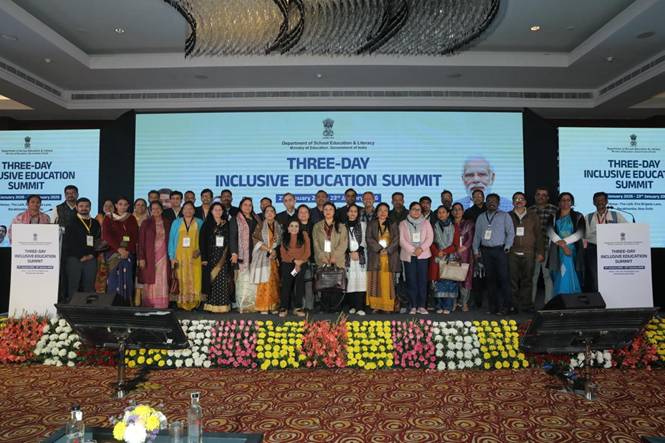
New Delhi | January 22, 2026 – As the three-day Inclusive Education Summit 2026 enters its second day, the conversation has shifted from policy theory to tangible pathways. Organised by the Ministry of Education (DoSEL) at The Lalit, New Delhi, the summit is setting a high bar for how India intends to align with NEP 2020 and the RPwD Act 2016.
While Day 1 set the stage, Day 2 focused on the “how”—the digital tools, pedagogical shifts, and inter-sectoral collaborations required to ensure no child is left behind.
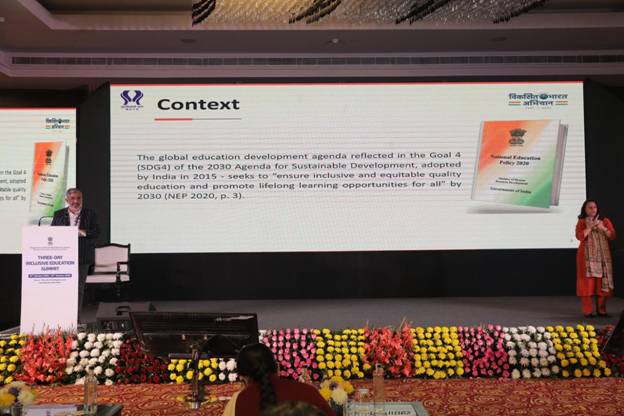
1. Digital Transformation: PRASHAST 2.0 Takes Center Stage
The most significant tech highlight was the unveiling and live demonstration of PRASHAST 2.0. Introduced by Ms. Ira Singhal (Deputy Secretary, DoSEL), this revamped disability screening tool is designed to move the needle on early identification.
-
Integrated Ecosystem: The tool now integrates directly with UDISE+, allowing for real-time tracking and data-driven interventions.
-
The Goal: Moving away from guesswork toward evidence-based planning at the school level.
2. Scalable Success: Lessons from the States
The summit showcased that inclusion isn’t just a national mandate; it’s a local reality. Two states shared blueprints that other school leaders can learn from:
-
Andhra Pradesh: Highlighted the transformative impact of their 125 Autism Support Centres.
-
West Bengal: Showcased a model of strengthening resource rooms to provide child-centric interventions immediately after identification.
3. Reimagining Pedagogy and Teacher Training
A recurring theme throughout the day was that “access” to a classroom is not the same as “achievement” in learning.
-
NCERT’s New Framework: Dr. Sharad Sinha presented an 8-module framework designed to mainstream inclusive pedagogy. The focus is on training teachers to manage diverse classrooms as the norm, not the exception.
-
NCTE & NIOS: Discussions led by Prof. Pankaj Arora (NCTE) and Prof. Akhilesh Mishra (NIOS) highlighted the shift toward flexible admission systems, accessible e-content, and a national mentoring mission to support inclusive practices in everyday schooling.
4. Beyond the Classroom: Sports and Language
Inclusion was also discussed through the lens of holistic development:
-
Inclusive Sports: Representatives from Special Olympics Bharat and the Indian Blind Sports Association emphasized that sports are a primary vehicle for building confidence and independence in children with intellectual and visual impairments.
-
The Power of Words: Ms. Amita Tandon (UNICEF) reminded delegates that disability-inclusive language is the first step in reducing stigma.
Innovator’s Spotlight: Prof. Bharti Kaushik (CIET, NCERT) showcased the “Kitaab Ek, Padhe Anek” project. Based on Universal Design for Learning (UDL), this initiative allows a single textbook to offer multiple accessible pathways, proving that “one size fits all” is a thing of the past.
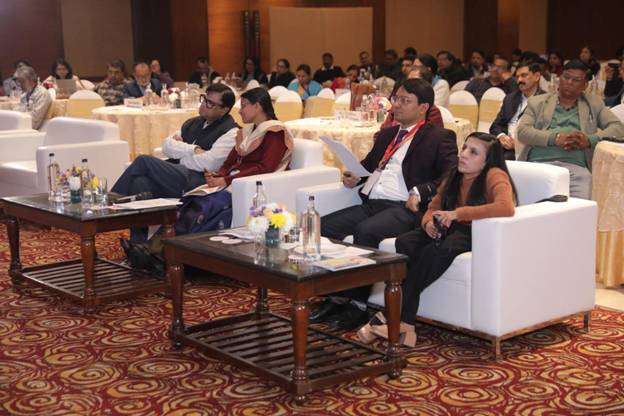
Key Takeaways for School Leaders
As the summit concludes its second day, the message to the Indian education fraternity is clear:
-
Screen Early: Use tools like PRASHAST 2.0.
-
Train Often: Move toward inclusive pedagogy, not just special education.
-
Build Infrastructure: Invest in resource rooms and UDL-compliant materials.
Education
AI to Become a Core Subject from Class 3: India’s Big Leap Toward a Future-Ready Generation

In a landmark move to make India’s school system future-ready, the Department of School Education & Literacy (DoSE&L), Ministry of Education, has announced that Artificial Intelligence (AI) and Computational Thinking (CT) will be introduced as part of the school curriculum from Class 3 onwards, beginning in the academic year 2026–27.
The initiative marks a major step in preparing students for an AI-driven world, ensuring early exposure to technological literacy, ethics, and problem-solving. The curriculum, currently being developed through a consultative process with CBSE, NCERT, KVS, NVS, and States/UTs, will fall under the National Curriculum Framework for School Education (NCF-SE) 2023, in alignment with the National Education Policy (NEP) 2020.
A stakeholder consultation held on 29th October 2025 brought together education leaders, including Prof. Karthik Raman from IIT Madras, who heads the CBSE expert committee responsible for shaping the AI & CT curriculum. The focus is on designing a meaningful, inclusive framework that integrates AI not as an advanced elective but as a foundational skill — comparable to literacy and numeracy in importance.
Shri Sanjay Kumar, Secretary, DoSE&L, emphasised that AI education should be viewed as a universal skill closely linked to real-world applications. “Every child’s distinct potential is our priority. Policymakers must define minimum thresholds and evolve them with changing needs,” he said. He also stressed on teacher training as the backbone of successful implementation, with modules under NISHTHA, and resource materials being prepared by NCERT and CBSE.
The Ministry plans to release AI handbooks and digital resources by December 2025, followed by a grade-specific rollout supported by video-based learning materials and structured training.
By embedding AI education from the foundational years, India aims to nurture a generation that understands, creates, and applies technology ethically — transforming the vision of AI for Public Good into everyday classroom reality.
Education
Dharav Utsav to Celebrate Rajasthan’s Cultural Heritage and Local Talent

Education
Beyond the Syllabus: School Teachers’ Insights on Project-Based Learning

How classroom experiences are being reshaped through projects, inquiry, and authentic learning
As the classroom grows beyond the boundaries of textbooks and blackboards, so too does the role of the teacher, and the very meaning of learning. Project-Based Learning (PBL), once considered a niche innovation, is increasingly being embraced by educators across schools in India. But what happens when PBL moves from theory to practice?
To answer this, we turned to the people at the heart of the learning experience: teachers.
In conversations with educators from diverse school contexts, one theme was clear: PBL is not just a teaching strategy; it’s a transformation in how students learn, engage, and grow.
From Worksheets to Real-World Work: How PBL Differs from Traditional Homework
One of the clearest contrasts teachers observed was how PBL moves learning from repetition to relevance. Traditional homework often reinforces information through rote exercises. PBL, by contrast, asks students to apply their knowledge to solve problems, create products, or investigate issues that matter to them.
One teacher shared how using PBL to raise student awareness about water pollution was a hit in the class. Instead of just assigning problems, the students were made to create awareness posters, conduct surveys in their neighbourhood, and suggest solutions through group presentations. The teacher also noted how the students took the lead, and had an ownership over this project that they usually don’t showcase.
The shift from repetition to application fosters deeper engagement. Several teachers noted that students who previously struggled to stay motivated with homework showed renewed interest when asked to take on real-world challenges.
Changing Roles: Teachers as Facilitators, Not Just Instructors
Project-Based Learning also changes the role of the teacher, who went from being the sole source of knowledge to a guide who supports inquiry and exploration.
One common change teachers noticed was on how they had to let go of control in the classroom. Naturally, the students now had to work on projects on their own, and could only come to the teacher for guidance and help. The teachers noted that they helped their students ask the right questions, find credible sources, and evaluate their work, instead of completely placing the burden of learning on the teacher themselves.
This change isn’t always easy. It requires a shift in mindset and in many cases, rethinking how time is used in class. But most teachers agree: the shift is worth it. PBL has encouraged interdisciplinary approaches, made space for collaborative learning, and created more meaningful student-teacher interactions.
Unlocking Student Potential: What PBL Offers Beyond Academics
Academic performance remains important, but a lot of teachers repeatedly pointed out that PBL nurtures a broader set of skills, like critical thinking, collaboration, communication, and creativity. One teacher particularly noted on how their quietest students became ‘leaders’, and became outspoken when it came to presenting their ideas and projects. While not directly, PBL helped these students find their voices, and find confidence in their effort and abilities.
Students learn to manage time, negotiate roles, and solve problems, skills that aren’t always reflected in exam scores but are vital for life beyond school. For many teachers, the most rewarding aspect of PBL was watching students take initiative, work through failure, and reflect on their learning.
Widening the Circle: Strategies for Scaling PBL in More Classrooms
While the benefits are clear, teachers acknowledged that implementing PBL at a large scale comes with challenges, like limited time, rigid curriculum structures, and unfamiliarity among teachers.
They offered a few practical suggestions for schools and educators considering wider adoption:
- Start Small and Build Confidence: Starting with short projects aligned to the unit you are already teaching introduces PBL in an easy manner. This way, teachers do not have to worry about overhauling their curriculum, or for making huge changes to their current teaching methods.
- Encourage Collaboration Among Teachers: Joint planning across subjects makes projects richer and more integrated. This also promotes interdisciplinary skills among students, and allows them to craft solutions using different subjects and skillsets.
- Make Time for Reflection: Embedding opportunities for students to present, critique, and reflect helps solidify learning. By reflecting on their projects and mistakes, they can understand how they can improve their approach to PBL.
- Support Professional Development: Teachers emphasized the need for ongoing training, not just one-off workshops but long-term spaces for peer sharing and mentorship. This continuous development would cement and solidify the methods and outcomes that will maximise using PBL for student benefits
Looking Ahead: Redefining Success in Education
PBL challenges traditional ideas of what learning looks like. It pushes students to move beyond memorization, and it challenges teachers to rethink their methods. But more than anything, it opens up the classroom to ideas, to communities, and to possibilities. No longer are students just preparing for exams, but also for the complex world outside school.
As educators continue to navigate the changing landscape of education, the insights from teachers point us toward a hopeful future, where learning is meaningful, relevant, and rooted in real-world experience.
This article is authored by Mrs. Padmashini M Patro, Principal, Air Force School Bamrauli
Education
Over 1 Lakh Single-Teacher Schools Educate 33 Lakh Students Across India: MoE Data

Education
Over 3 Lakh Schools Join Hands for India’s Largest-Ever Innovation Challenge: Viksit Bharat Buildathon 2025

In a historic moment for Indian education, more than 3 lakh schools across the country came together to participate in the Viksit Bharat Buildathon (VBB) 2025, the largest live school innovation challenge ever organised in India. The nationwide event was inaugurated in New Delhi by Union Education Minister Dharmendra Pradhan, marking a significant milestone in the Government’s efforts to embed creativity, innovation, and problem-solving into the school ecosystem.
The Viksit Bharat Buildathon, organised by the Department of School Education & Literacy (DoSEL) in collaboration with Atal Innovation Mission (AIM), NITI Aayog, and AICTE, saw over one crore students from Classes 6 to 12 working simultaneously during a 120-minute live innovation session. Students teamed up in groups of three to five to design prototypes and propose solutions under four themes — Atmanirbhar Bharat, Swadeshi, Vocal for Local, and Samriddhi.
While inaugurating the event, Minister Pradhan interacted virtually with students of PM SHRI Government High School, Khorda, Odisha, and later visited Delhi Public School, Mathura Road, and Kendriya Vidyalaya No. 2, Delhi Cantt. Commending students for their creativity, he said, “The vision of Viksit Bharat will be realised through the innovative spirit of our young learners. These ideas will not only address domestic challenges but also create global models for change.”
The event drew widespread participation, with Uttar Pradesh leading the numbers (78,206 schools), followed by Maharashtra (41,198), Gujarat (20,017), and Madhya Pradesh (18,129). Other states like Tamil Nadu (16,370), Bihar (15,732), Odisha (12,344), and Haryana (11,567) also recorded impressive engagement, showing the growing momentum for grassroots innovation across regions. Even smaller territories like Ladakh (358), Puducherry (149), and Andaman & Nicobar Islands (171) participated actively, reflecting the nationwide reach of the initiative.
According to Sanjay Kumar, Secretary, DoSEL, this unprecedented participation signals a transformation in how Indian students approach learning. “This one-of-a-kind movement strengthens innovative thinking and enhances the problem-solving capabilities of students across India,” he said. Deepak Bagla, Mission Director of AIM, called the initiative a “mass movement connecting schools in remote villages with those in metropolitan cities through innovation.”
A New Chapter for Indian Education
The Viksit Bharat Buildathon signifies more than just a hackathon — it reflects a systemic shift in Indian education towards experiential and innovation-led learning. As schools across the country engage in design thinking, tinkering, and collaboration, students are being equipped not just with knowledge, but with the mindset and skills needed to build a self-reliant India.
By nurturing creativity from an early age and fostering partnerships between schools, government bodies, and industry, the Buildathon is shaping a generation ready to contribute to the vision of Viksit Bharat 2047 — a developed, empowered, and innovation-driven India.
Education
17-year-old Innovator Designs Learning Tools for the Visually Impaired

At just 17, Singapore-based student Ameya Meattle is proving that age is no barrier to impact. What began as a small idea to make education more accessible has evolved into a mission that is transforming how visually impaired learners experience learning and skill development.
Ameya founded Earth First at the age of 14 — a social enterprise that helps visually impaired individuals “earn and learn” by creating sustainable, eco-friendly products. Working with eight NGOs across India and Singapore, the initiative has trained more than 100 visually impaired students and launched over 23 sustainable product lines, from tote bags and jute placemats to macramé planters. Each design is adapted to provide hands-on learning opportunities and help trainees gain confidence in both craft and enterprise.
Beyond social entrepreneurship, Ameya has focused deeply on education and technology. He led a Python programming course for 50 visually impaired students, designing custom training modules that made coding accessible through screen readers and tactile tools. By introducing technology as a viable career pathway, Ameya hopes to help students move from manual tasks to high-skill, digital opportunities.
His work also extends into assistive technology research. Under the mentorship of Dr. Pawan Sinha at MIT, Ameya developed a VR-based diagnostic game to assess visual acuity in children — turning the process into an interactive experience rather than a clinical test. The tool is being piloted at MIT’s Sinha Lab and with Project Prakash in India, helping doctors evaluate and track visual development before and after eye surgeries.
In addition, during his internship at the Assistech Lab at IIT Delhi, Ameya worked on designing tactile STEM teaching aids, such as accessible periodic tables and coding tutorials for visually impaired learners. His goal, he says, is not just to innovate but to make scientific learning inclusive and joyful for all.
Ameya’s work highlights how education, empathy, and innovation can intersect to create a more equitable future — one where technology serves not just progress, but people.
Education
Ministry of Education Urges Schools to Adopt UPI for Digital Fee Payments, Promoting Ease of Schooling
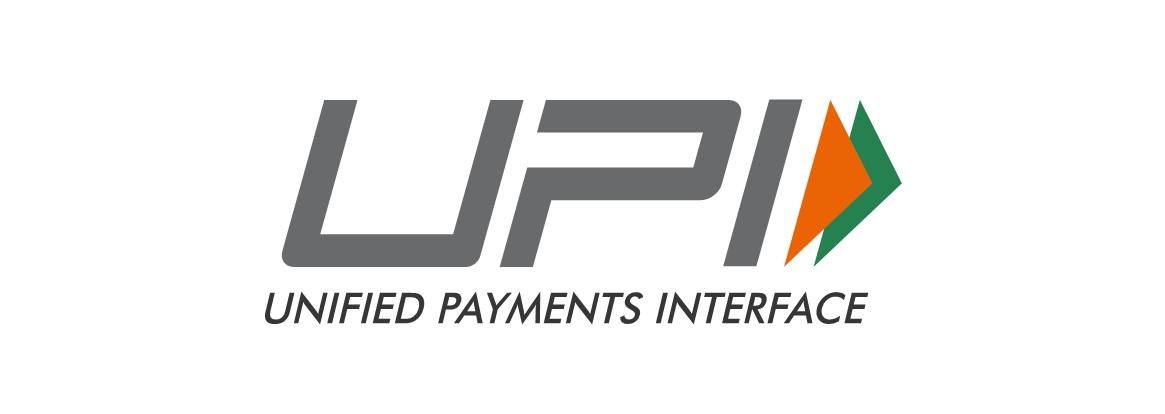
-

 Inspiration3 months ago
Inspiration3 months agoUmeed: A Ray of Hope for Better Tomorrow
-

 Knowledge1 month ago
Knowledge1 month agoBuilding a Healthier India: Why School Health Programs Are Essential
-

 Inspiration2 months ago
Inspiration2 months agoBefore the Nobel, There Was a Teacher
-

 Education2 months ago
Education2 months agoWhat the Indian Army Teaches Our Children Beyond Textbooks
-

 News1 month ago
News1 month agoInclusive Education Summit 2026: Designing the Future of “Learner-Centric” Education
-

 Education4 weeks ago
Education4 weeks agoBeyond the First Bell: 5 Key Takeaways for School Leaders from Economic Survey 2025–26
-

 Education4 weeks ago
Education4 weeks agoSupreme Court’s Landmark Judgment for Schools: Menstrual Health is a Fundamental Right
-
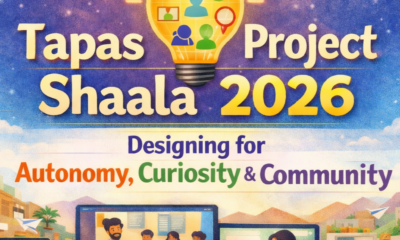
 Education1 week ago
Education1 week agoTapas Project Shaala 2026 to Spark National Dialogue on Autonomy, Curiosity and Community in Education
-

 Education3 weeks ago
Education3 weeks agoJudicial Guardrails: How the J&K High Court’s Fee Regulation Verdict Redraws the Rules for Private Schools
-
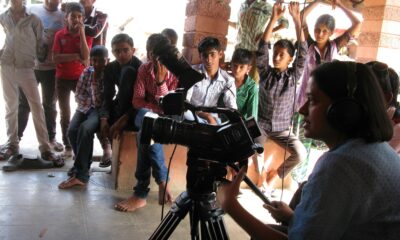
 Education4 days ago
Education4 days agoDaring to Dream: Six Years in the Heart of Rural Rajasthan
















